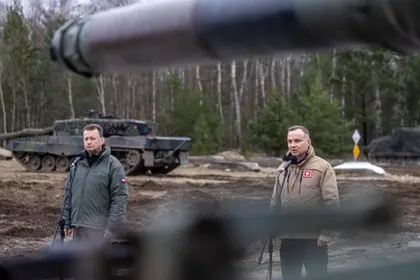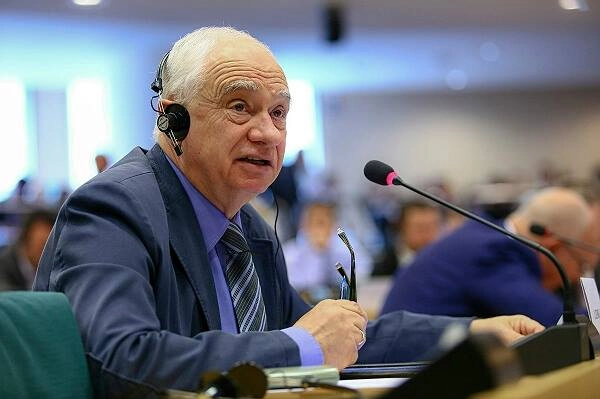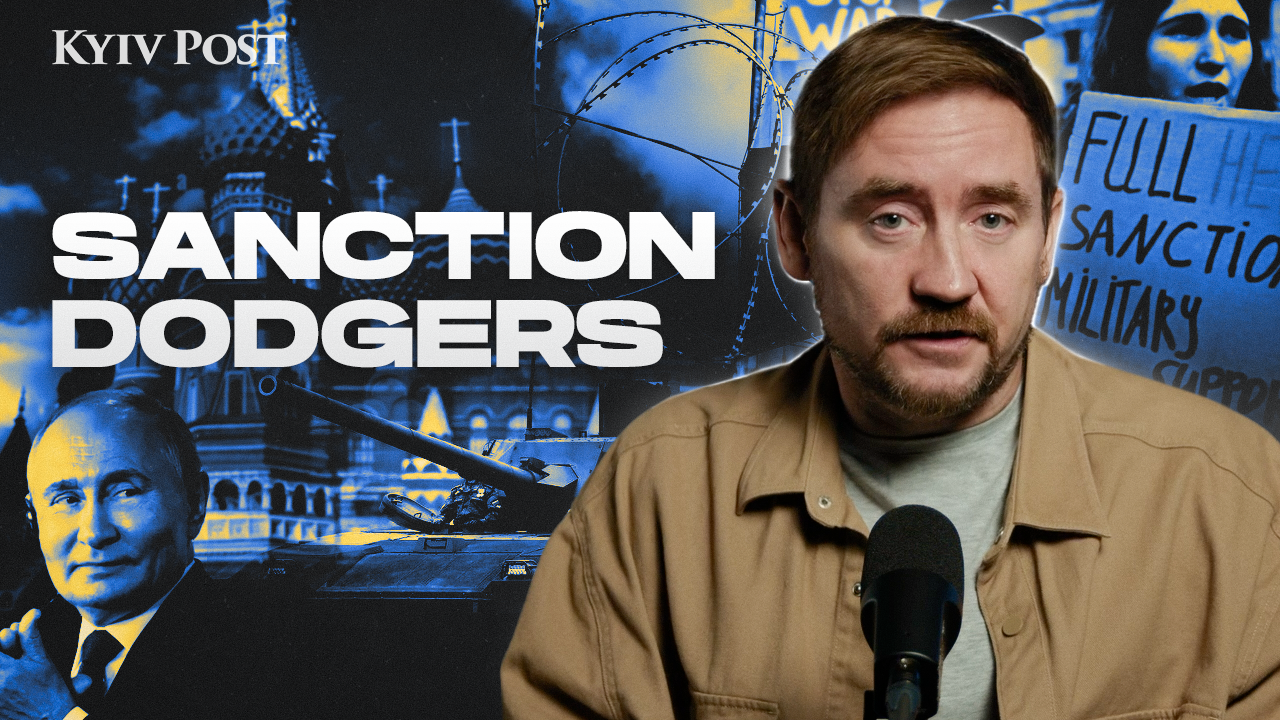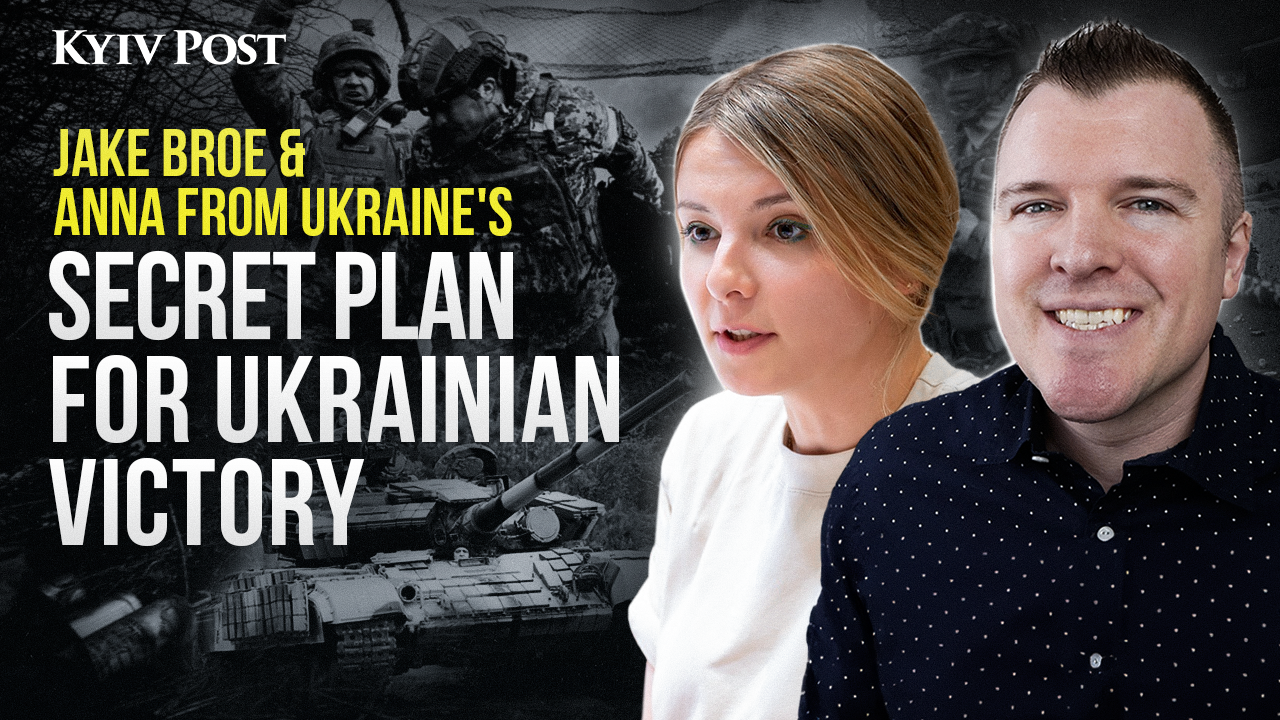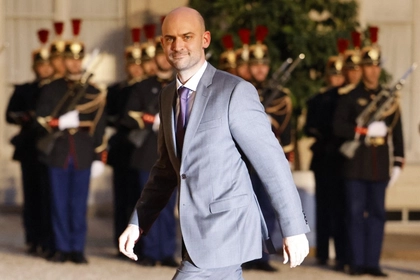In an interview with Kyiv Post, long-time Polish politician, Janusz Zemke - chief military adviser to the Left Party and deputy Minister of Defence 2001 – 2005, did not anticipate Warsaw abandoning Ukraine. He spoke on the effectiveness of the outgoing government and stated his position that Poland should not give its F16 fighter jets over to Ukraine.
JOIN US ON TELEGRAM
Follow our coverage of the war on the @Kyivpost_official.
Poland is about to undergo a major political change. After eight years, a coalition of liberal, Christian democrat and left-wing parties defeated the ruling nationalist PiS party at the polls on the 15th of October. How do you assess the military aid for Ukraine offered by the outgoing right-wing government?
I rate this help very highly for several reasons. Firstly, the response was extremely quick, which was important in terms of delivery times.
Secondly, a very quick review was made of what Poland could help with and on what scale.
Poland donated over 30 percent of all its heavy equipment, including large stockpiles of ammunition intended for post-Soviet weapons such as T-72 tanks.
I believe that what could be communicated has been done, and it is worth noting the efforts that are not visible at first glance.
The Polish armed forces have taken on significant logistics responsibilities because most of the weapons, regardless of their source, reach Ukraine through Polish territory. This requires organizing special transport and securing this equipment. In my opinion, it was done well and is being done well.
![[VIDEOS] North Korean Troops in Russia Confirmed](https://static.kyivpost.com/storage/2024/10/19/a6f6a4c5d74d066019e5812a20c6514f.png?w=420&q=75&f=webp)
[VIDEOS] North Korean Troops in Russia Confirmed
We have often heard criticism of the government from opposition politicians. Many opposition experts also drew attention to certain elements of support for Ukraine. Do you think it could have been done better? Could this military aid have been provided in a more effective way?
I am extremely critical of the PiS government and its actions, but it is worth emphasizing that there are a few areas that I assess positively – although they are rare.
I would like to emphasize once again that when it comes to military aid to Ukraine, in my opinion, the government has acted appropriately.
Could anything have been done better? Perhaps we could have done a little more when it comes to training Ukrainian staff because today Ukrainian soldiers are trained on a large scale in Great Britain and Germany.
Well, let's be honest, Ukrainian soldiers still use post-Soviet weapons, post-Soviet techniques and technology, so we also have a lot of experience here as a former member of the Warsaw Pact. We have various instructors and when it comes to such practical training, we could have done more in this area.
Let’s go back to the issue of transferring Polish F-16s to Ukraine. Should they have gone to our eastern neighbors?
We shouldn't hand over the F-16. Our aviation is relatively weak, we have practically only two types of combat aircraft: F-16 and previously MiG-29. I understand that Poland has donated its MiG-29s. However, it must be remembered that we only have 48 F-16s, and not all of them are operational because the rest undergo regular inspections and maintenance.
If we handed over our F-16s, Poland would be left without its own combat aviation.
It is worth noting that other countries, such as Belgium or the Netherlands, have many more F-16s than us and are already at the stage of introducing new F-35 aircraft into service.
We don't have the F-35 yet. So, I believe that the decision not to transfer the F-16 in the current conditions, where we only have several dozen operational combat aircraft, was right.
What will be the priorities for the incoming Polish government when it comes to strengthening Ukraine's security over the next year?
The new government should carefully analyze what is in the resources and supplies of the Polish army. This requires detailed assessment.
If there are any tanks left, for example the PT-91, it would be worth considering donating them, given the supply of modern Korean and American tanks coming to Poland. PT-91 are more modern than T-72, so such a step would be worth considering.
Ukraine ordered “Krab” artillery systems from Poland, which work very well there. It is worth considering donating some more “Krabs” to this Ukrainian contract, while replenishing our own resources.
However, such a decision requires a thorough analysis, because in addition to helping Ukraine, we also have obligations related to our own security.
I don't know if there is any awareness of this, but when it comes to the percentage of its heavy equipment resources transferred to Ukraine, Poland has provided the most as a percentage of its own resources and capabilities.
Let's move away from Poland for a moment and focus on the Western world. How do you see NATO's assistance to Ukraine over the next year? What should military aid focus on?
Military assistance should focus on providing ammunition on a larger scale.
This is important because having new weapons doesn't matter much if you don't have enough ammunition. Therefore, it is absolutely necessary to take action to increase the supply of ammunition and missiles.
It is worth carrying out a complete overview of possibilities in this area. The European Union provides some financial resources for such purposes, especially compensation for countries such as Poland that have already donated ammunition and want to increase its production.
However, the new Polish government will assess whether these measures are sufficient. This issue is urgent and requires quick action.
I also think that within NATO it would be necessary to review the resources of combat aircraft that individual countries have. Because some countries have the F-16, and at the same time they are switching to the new generation of F-35 aircraft faster than Poland.
We will only have these F-35s in Poland in a few years, because even if these deliveries are to start in about three to four years, these F-35s will initially stay in the United States and Polish pilots will train on them there. So we simply will not have these planes physically in Poland.
But other air forces are already using them and they could, for example, donate their F-16s to Ukraine.
How do you see the commitment of the incoming Polish government when it comes to Ukraine's accession to NATO and the European Union? Will this government aim for Ukraine to be fast-tracked?
I assume that the future government will radically improve our relations within the European Union and that will significantly improve Poland's position within the EU.
Currently, Poland is often in a group of countries such as Hungary.
I'm thinking here about Germany and France mainly, but also about the EU itself.
When it comes to NATO, it seems to me that we are a very solid member and we have a good position there.
And it is also in Poland's interest to ensure that Ukraine joins the EU or NATO.
But I can tell you about the Polish experience, because I was an MP for thirty years in total, and I was still an MP at a time when Poland aspired to join NATO and joined it. It is worth noting that we did not join NATO immediately in 1999, it was not like we became a member in one day.
The entire process of preparations for joining NATO took place as part of the “Partnership for Peace” program, in which I participated as an MP.
This process included training military personnel to change internal procedures and adjust weapon calibers, among other things. These were intense activities that lasted for many years.
So I think that perhaps there would be less need to talk about the specific date on which Ukraine will formally become a member of NATO.
We just need to adopt a very pragmatic NATO preparation program for this, because in Polish conditions it was somewhere around five to six years of very intensive activities of the entire army and ministry.
I would like to give an example. As part of our preparations for joining NATO, for example, we had an extensive English language program for military personnel.
Courses were organized not only in Poland, but also, for example, in Canada, where intensive training was conducted. I also participated in such a course. These were courses lasting many months.
Currently, however, the problem when it comes to Ukraine is that it is a country engaged in daily combat, and unfortunately, it does not have the opportunity or resources to send commanders to long-term English language courses.
Currently, the most important thing is that they fight on their own territory. I wanted to show an example, but it's just one of many issues.
However, it was these activities, such as participation in joint exercises and adaptation to NATO standards, which lasted for many years, that allowed Poland to become a full member of NATO.
This is just one example that joining itself was a certain finale of a process that had been going on for many years.
Why could Finland or Sweden join NATO right away?
Finland has already entered, and Sweden is about to enter. Because they, not being in NATO, used all NATO procedures, NATO calibers and so on. Their military staff also mastered the English language perfectly.
In how many years could Ukrainians expect NATO membership?
I can't put any date.
And looking more broadly at Polish-Ukrainian relations, can Poland feel safe at all without a safe Ukraine?
No.
When it comes to Poland's security, the fact that Ukraine absolutely cannot lose the war is an essential foundation for our security, alongside our membership in NATO.
If Ukraine lost, God forbid, it would dramatically worsen Poland's security situation.
In such a case, the border of direct contact with Russian troops would increase from the current 600 kilometers (373 miles) to over 1,100 kilometers (684 miles). This is an increase of over 500 kilometers (311 miles).
A loss for Ukraine would absolutely dramatically worsen Poland's security conditions.
Let's focus for a moment on Poland's security. PiS increased spending on the Polish army to 4 percent GDP. They ordered, among others, 400 American Abrams and a thousand Korean K2 tanks. That comes on top of 220 modern Leopard 2 tanks currently in use. Was this money well spent?
The fact that we are increasing defense spending is a positive step.
I would like to provide specific numbers so that you have a full picture of the situation. When Law and Justice took power in 2015, the budget of the Polish Ministry of National Defense was PLN 38 billion ($9 billion).
In 2022, i.e. last year, in the context of the conflict and aggression of Russia against Ukraine, this budget amounted to PLN 58 billion ($13.8 billion).
This year, the budget amounts to PLN 98 billion ($23.4 billion), plus PLN 40 billion ($9.5 billion) from the Armed Forces Support Fund.
It is planned that next year the defense budget will amount to PLN 137 billion ($32.7 billion), and an additional PLN 40 billion ($9.5 billion) from the Armed Forces Support Fund.
If we add these amounts, in 2023-2024 Poland's defense budget will increase threefold.
These are huge resources.
The fact that we are increasing money for the army is absolutely right, because we need a generational replacement of weapons. We have many types of weapons that are several dozen years old and simply not suitable for combat.
The country's air defense and navy are in terrible condition. Additionally, our land forces often use combat vehicles that are over 50 years old. Our number of modern aircraft is insufficient compared to our size as a country.
Therefore, increasing defense spending is absolutely justified.
So the outgoing government did a fantastic job?
Not quite. We buy all this without tender procedures, so in other words, the seller clearly has a dominant position, which of course affects the price and what the seller offers us.
The chaos in the armed forces is terrible. I think that over time there will be a serious problem when it comes to platform differences, technically speaking, because we will have many types of tanks, many types of helicopters.
Everyone is trying to simply unify weapons, and we have very different types here, so in my opinion it will be a colossal problem when it comes to preparing personnel and a colossal problem when it comes to maintaining these weapons.
Well, if you have several types of helicopters, several types of tanks, then there are different parts, there are simply different supply systems.
Then comes the problem with the army staff. It's not enough to buy several hundred super-modern missile launchers, you also need to prepare highly specialized officers and soldiers to operate these machines. I don't see these staff preparation programs.
We make huge arms purchases, mainly in two countries – the United States and South Korea. It's very good that we make such large purchases. I have doubts whether they are all thought out and I have doubts whether we are really doing the right thing by buying everything that can be bought at any given time. Without thinking that if we buy something, we will use it for an average of 40 years.
So it would have been better to think ahead of the renovations, logistics and training facilities from the very beginning.
Politicians of the outgoing government accuse the opposition parties of wanting to shrink the Polish army. Do such allegations have any basis in reality?
No, this is a misunderstanding.
Current Minister of Defense Mariusz Błaszczak kept talking about an army of some 300,000 soldiers.
These are quite vague announcements. However, it is worth listening to the words of Tomasz Siemoniak, who is a worthy contender to become the next Polish Minister of Defense.
His outlook on the size of the Polish army seems a lot more realistic, taking into account Poland's demographic situation and financial possibilities.
This does not assume a reduction in the army, because currently, we have approximately 120,000 professional soldiers.
And Minister Siemoniak said that we would need 150,000 professional soldiers.
In addition, there is territorial defense and voluntary military service.
So if all this were added up, it would amount to as much as 230,000 soldiers.
This means an increase compared to today's number of approximately 180,000 soldiers.
So the thesis that it would be a reduction in relation to today's situation, this is untrue.
There would be an increase – but not as sudden as Minister Błaszczak saw it in his various propaganda statements.
You can also highlight the text and press Ctrl + Enter


